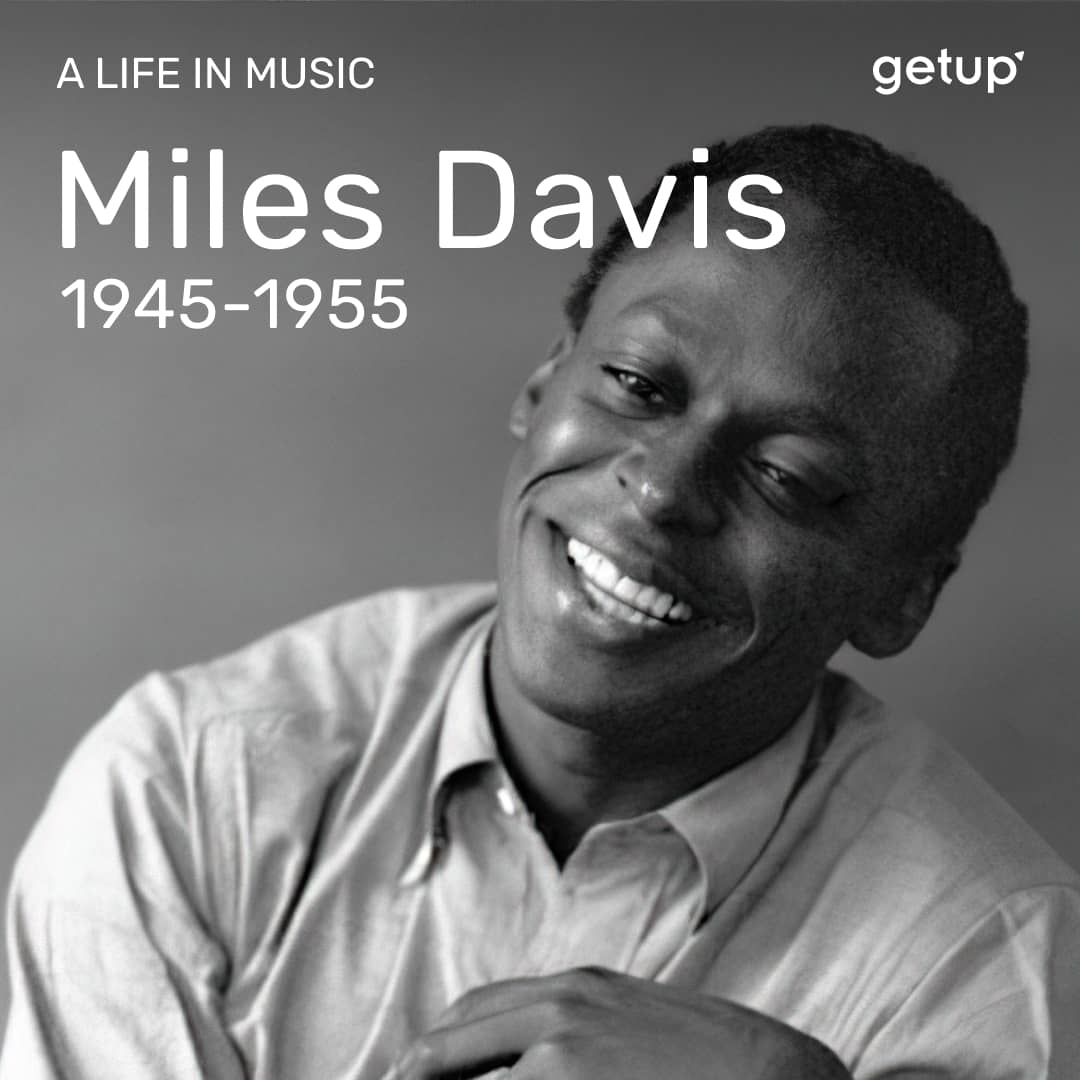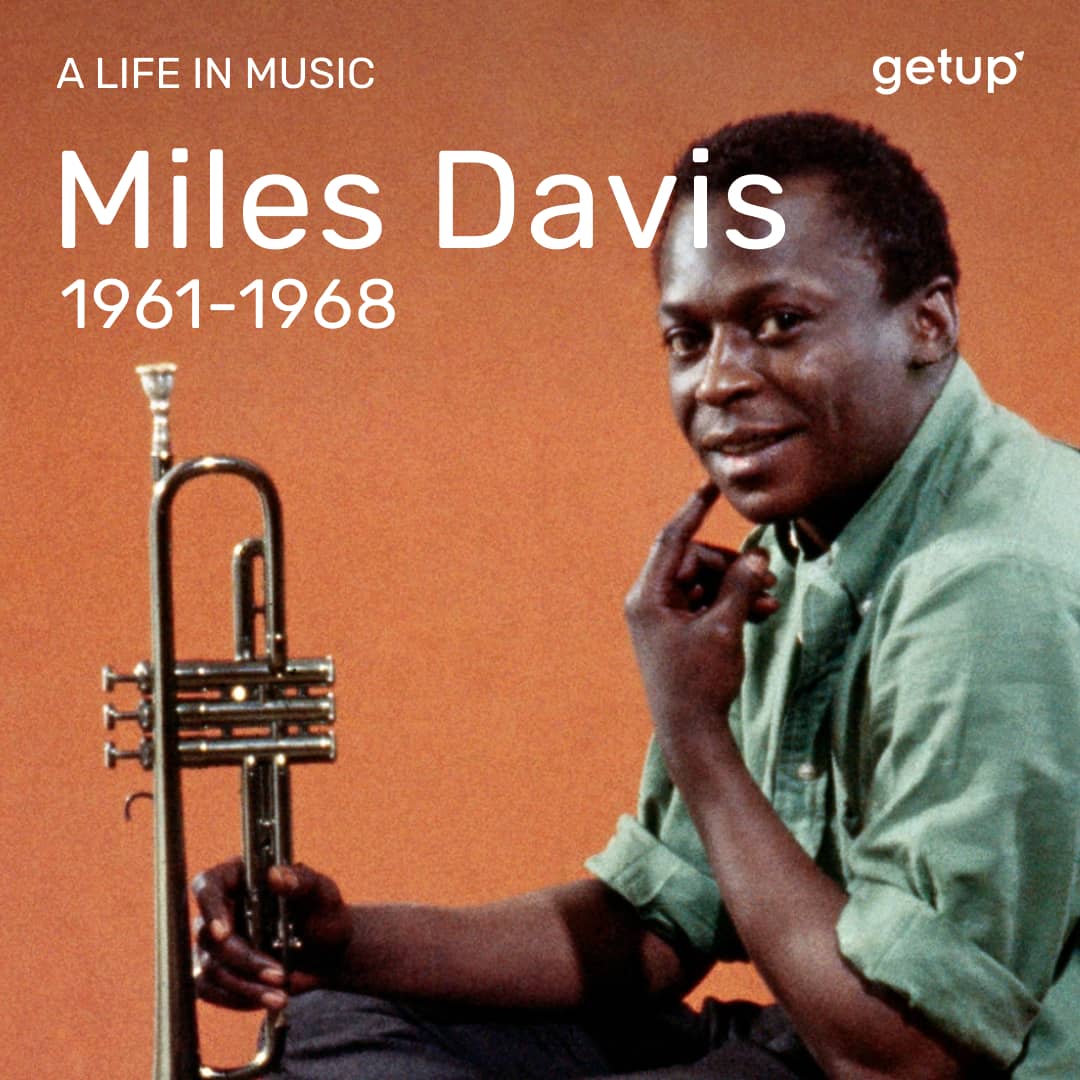On 28 September 1991, a musician who could claim to have ‘revolutionised music five times’, without ever having inspired mockery or ridicule, passed away. Like any good gemini, Miles Davis went where the wind took him, following his seemingly magical intuition.
It all started at the age of eight when Ellington, Hampton and Basie were on the radio. Our young Illinois native was hooked. He soon took up the trumpet, taking lessons and joining his high school band, though never coming first in any competitions. Why not? Because he was Black. In response he worked hard to master his music.
It was at this point that he started to meet people like Clark Terry and Sonny Stitt.Then came the slap in the face that was Parker and Dizzy’s bebop. ‘I was so shocked that I couldn’t decipher a single note.’ Davis left for New York where by day he studied at the prestigious Juilliard School, and by night sought out Parker in the clubs on 52nd Street. When he finally met his hero he mistook him for a tramp. Davis then became enmeshed in the cutting edge of the avant-garde, alongside his new friend (“Billie’s Bounce”). He was nineteen years old. ‘Bird wanted a different trumpet player from Dizzy. He wanted a more relaxed style, someone who played in the middle register, like me.’ Miles took on a more restrained style that he drew from the Saint Louis playbook: a round, clean sound with a slight vibrato.
In 1947, he began to make recordings as a band leader (Milestones) and began a lifelong friendship with Gil Evan. ‘This tall, thin white guy came in with a bag full of radishes that he ate with salt’ Davis remembered of the man who who chiselled out the refined arrangements for “Moon Dreams” on Birth of The Cool. Dizzy didn't like it, commenting that ‘you have to sweat your balls off in this kind of music. They softened it up.’ Others, such as Chet Baker, jumped into the breach. As for Miles, he worked with Sonny Rollins (“Morpheus”), Lee Konitz (“Odjenar”), Zoot Sims (“Tasty Pudding”), and Charlie Mingus (“Smooch”). Though these are all assured works, a stagnation was beginning to occur. Addicted to heroin, Davis gave up playing and started hustling and pimping in order to satisfy his vice.
At the end of 1953 he locked himself away at his father’s house to get away from it all. He rebirth came with Walkin’: ‘This album completely changed my life and my career. (...) I wanted to set the music on fire again with improvisations of bebop, that Diz and Bird had started.’ These legendary sessions with Monk in 1954 are remembered to this day. On one of Milt Jackson’s songs (“Bag’s Groove”), Miles insisted that the pianist not play during his solo. Angered, Monk danced like a bear around the trumpeter. ‘When you’re a brass player and you’ve got Monk behind you, it’s like having the devil himself poking you in the ass with his pitchfork – it’ll either distract you or give you wings to fly’ remarked Laurent de Wilde in an apt analyses. Drama also occurred on “The Man I Love”. During his solo, Monk remained silent for ten interminable seconds. It was too much. Miles gave him his marching orders and asked his pianist Red Garland to imitate the airy style of Ahmad Jamal (“Will You Still Be Mine”). His intuitions were astute and the first quintet was to become legendary...


.jpg)
.jpg)

.jpg)